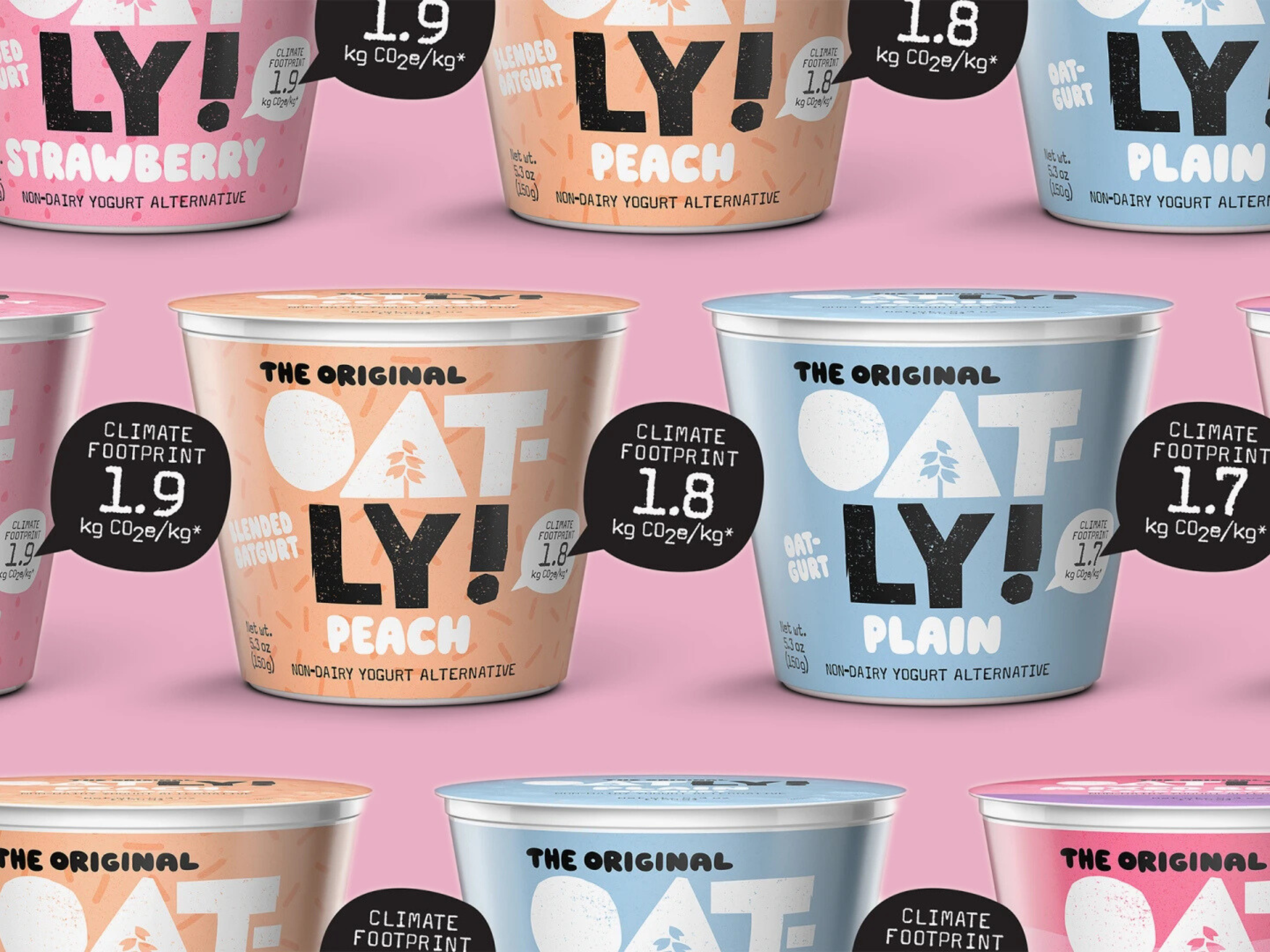
Current evidence overstates the impact of eco-labels on food products and menus. It doesn’t mean we should stop using them, says a new study.
Sustainability labels that show a product or meal’s climate impact aren’t as influential as many studies make them out to be, a new meta-analysis has revealed.
Reviewing 49 studies with over 150,000 customers, researchers found that these labels have a “small-to-moderate average effect” on purchase behaviours. The efficacy further dropped after they adjusted the estimates for publication bias.
Further, they found that eco-labels tend to work better online (where they have increased visibility) than in person. “While online consumers are more likely to consider long-term, abstract benefits such as sustainability, offline shoppers tend to prioritise immediate, practical considerations like convenience and usability,” explains the study, currently in pre-print.
Despite these findings, the multi-university effort concluded that the “indirect and long-term impacts” of sustainability labels should not be overlooked, as they can serve important roles beyond merely changing consumer behaviour.
That includes increasing reputational incentives for companies, improving data for emissions tracking nd supply chain transparency, laying the groundwork for stronger policy tools, and helping address misconceptions about the environmental impact of different products.
Why eco-labels don’t carry much influence

So why aren’t eco-labels so successful? In physical stores, people interact with products in a tactile manner. They’re lined with competing stimuli, such as in-store promotional banners and price tags – so the information overload can reduce the salience of sustainability labels.
In school cafeterias, these labels have little effect because the food choices are often constrained, providing students with limited flexibility to act on their sustainability preferences.
Sophie Attwood, a behavioural scientist and founder of consultancy Behavior Global, offers another explanation. “You filter out the information from products that you are most interested in [from] the sea of information you are presented with,” she tells Green Queen.
“Most consumers aren’t necessarily prioritising this when they are shopping for food. It’s more a ‘nice to have’ if you are oriented to care in some way about sustainability.”
The study indicates that these labels are useful for those already engaged in sustainability and who are looking/primed for these details. It’s a finding Matthew Isaacs, co-founder of carbon labelling platform My Emissions, has also observed.
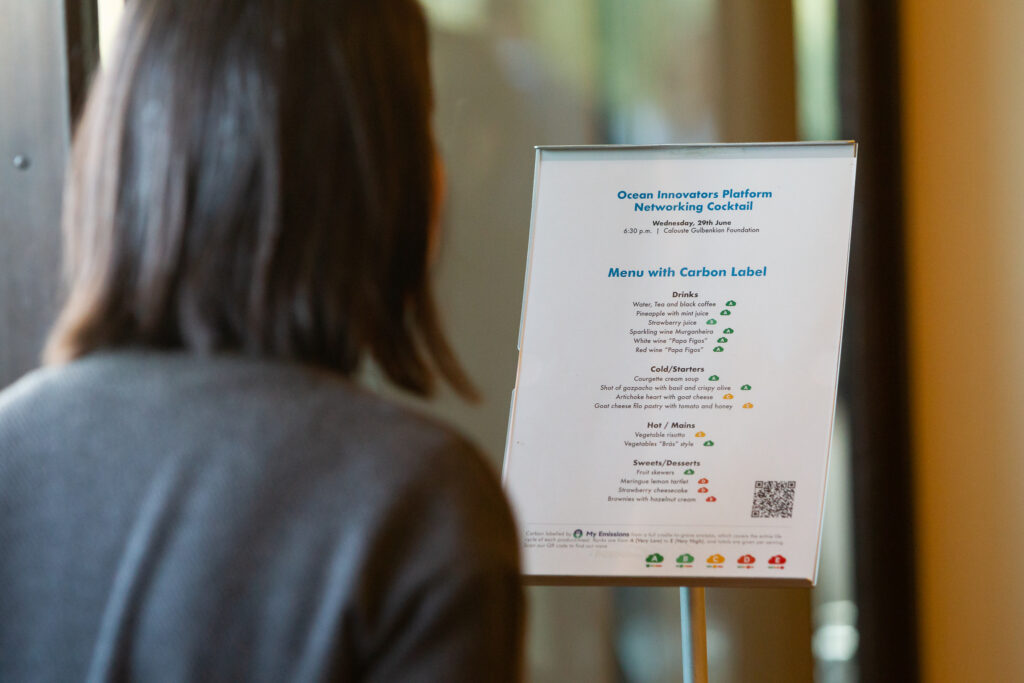
“We’ve found that repeated exposure is key: people often need to see a carbon label several times before it influences their choices,” he says. This echoes findings from the study too, which says constant exposure can “build environmental literacy, enabling consumers to better distinguish between more and less sustainable options”.
“This is likely due to generally low awareness and understanding of food emissions and carbon labelling. Even within the industry, many still focus on packaging and transport rather than the full emissions picture,” says Isaacs.
His firm’s research has shown that eco-labels tend to have a greater influence in foodservice than retail. “This may be because entire menus are labelled, creating a more immersive and consistent experience than isolated product labels,” he explains.
Climate labels more effective for businesses, including Oatly
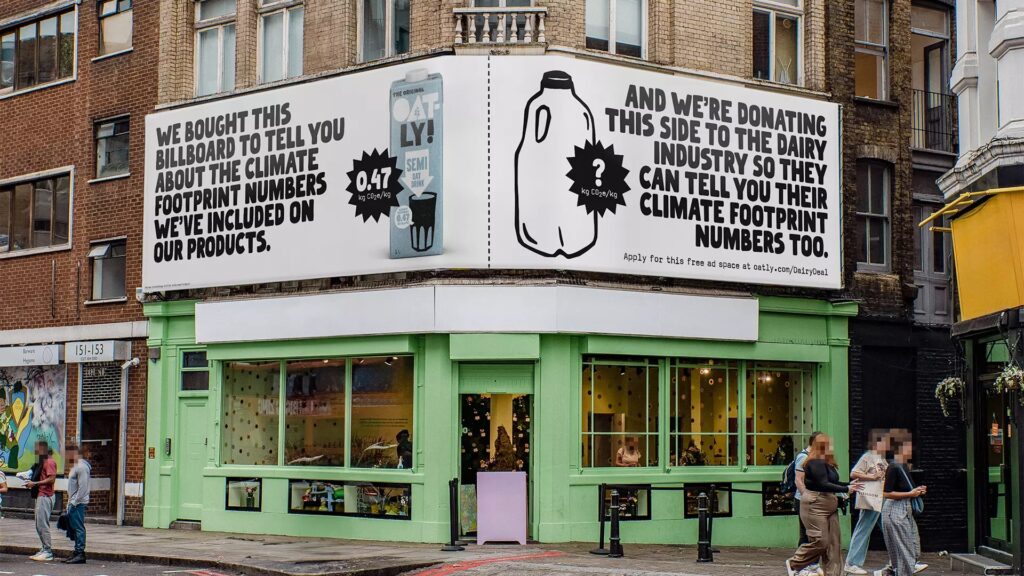
One firm that has championed carbon labelling is Oatly, which just became the food and drink sector’s first climate solutions company globally. Each of the Swedish oat milk maker’s products carries a carbon footprint label on packaging, and it has challenged dairy producers to adopt mandatory carbon labelling on their products.
“It’s not the whole answer, but climate labelling is about giving consumers the freedom to make informed choices about what they’re buying and how it impacts the planet – from grower to grocer,” Oatly’s senior sustainability director, Caroline Reid, tells Green Queen.
“Our own research found that the majority of consumers in the UK (59%) said that they would make changes to their diet if they had accurate information about the climate impact of their food and drink choices,” she adds.
Reid points to a large-scale study from the University of Cambridge, which concluded that “carbon footprint labels have statistically significant impacts on meal choices”.
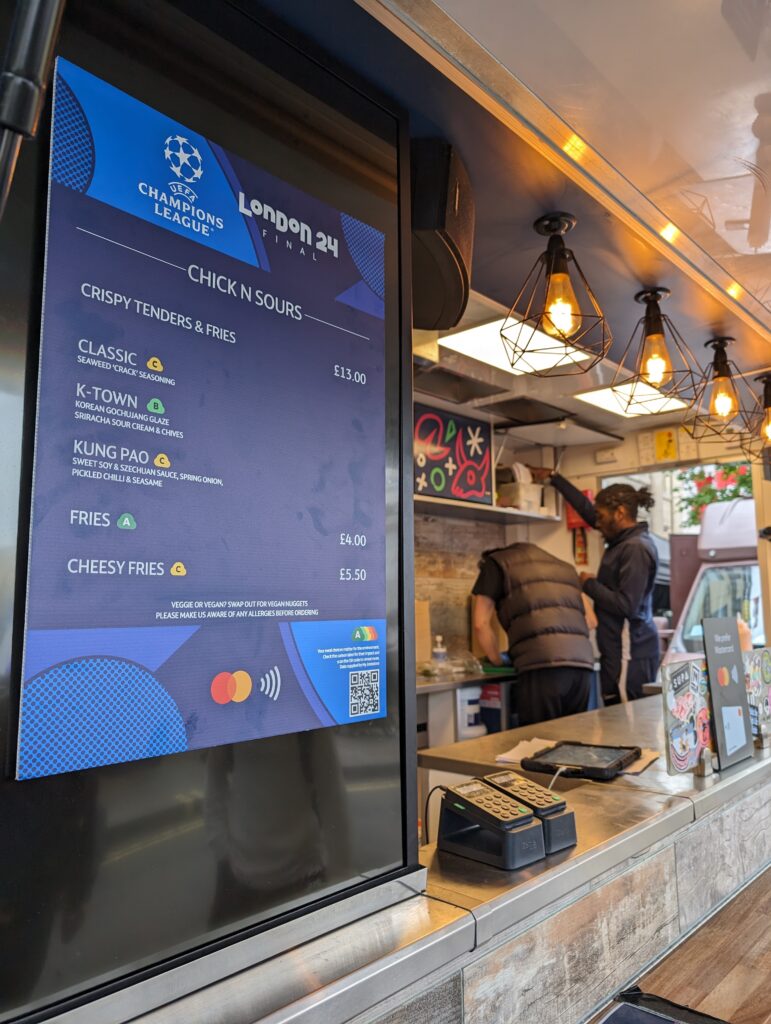
My Emissions’ data reveals another interesting fact: “Carbon labels are more effective at the operator level and in B2B contexts,” says Isaacs.
“For instance, we regularly see emissions reduced by over 10% when we share data and insights with chefs or recipe development teams, who then make changes to reduce emissions. Similarly, B2B customers, driven by net-zero targets, tend to act more decisively on sustainability data,” he explains. “This highlights the importance of looking beyond just the consumer impact.”
Could geography play a part too? “Our analysis does hint that ‘where’ you run an eco-label intervention might matter – China, France, and Switzerland showed reliably positive shifts, while most other countries hovered around the overall mean or produced confidence intervals crossing zero,” Ziqian Xia, a PhD student of environmental behavioural science at Stanford University and co-author of the research, tells Green Queen.
“However, I want to emphasise that this geographic finding isn’t yet robust: many regions have only a handful of studies, so we really need more data before drawing firm conclusions about which country-level factors drive these differences,” he adds.
To fix eco-labels, look at other solutions
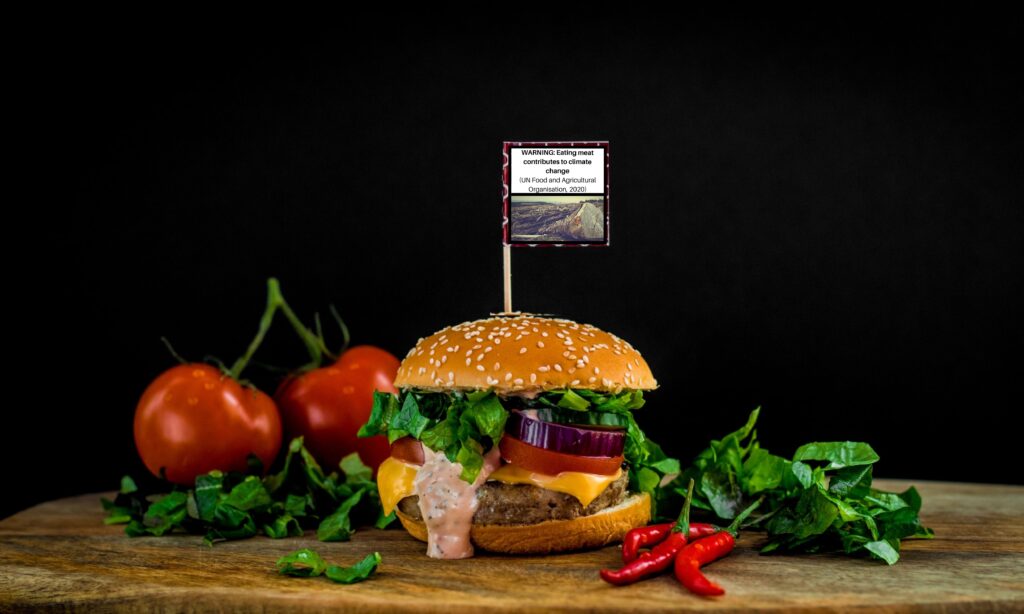
“Large retailers, food service providers, and public institutions increasingly integrate sustainability criteria into their procurement policies, yet detailed and high-quality environmental-impact information is often unavailable,” the study states. Eco-labels can be handy here, serving as a benchmark for corporate sustainability schemes and incentivising businesses to lower their footprint.
Xia and his colleagues call for greater standardisation and regulatory oversight on climate labelling to improve consumer trust and understanding. “Mandating uniform life-cycle assessment standards and independent verification will be helpful to build essential trust in label claims,” he says.
“On the private [sector] side, simplifying and standardising on-pack labels will help them cut through in-store clutter and be instantly recognisable. Embedding labels into digital channels – through interactive prompts, real-time comparisons, or even loyalty-point incentives – leverages the stronger online effects we documented and deepens consumer engagement,” he adds.
“To boost effectiveness among consumers, we need to improve the general understanding of where food emissions come from, and how simple dietary swaps can make a meaningful difference,” suggests Isaacs.
Oatly’s Reid, meanwhile, believes behaviour change won’t occur without “clear, consistent and accessible climate footprint information” published on food and drink products.

“We want to see more organisations from across the full spectrum of the food industry coming together to work out what an effective climate labelling system should look like,” she says. “The science is unequivocal – emissions from the food system must come down, and these reductions can’t happen without consumer behaviour change.”
Attwood has another idea: “We could go down the route of trying to make labelling more effective. Or, we could reorient to interventions that show much higher efficacy in general. For example, offering more, better-quality plant-based food options, removing meat-based menu items or products, or better marketing and advertising of plant-based options to boost appeal.”
This chimes with the study’s finding that labelling alone isn’t enough to drive widespread behavioural change. “Pairing labelling requirements with economic tools – like subsidies for low-impact products or tax incentives – can shift offline price signals toward greener choices,” says Xia.
“Finally, broad public-education campaigns and transparent, open registries of labelled products will raise baseline awareness, foster accountability, and help close the intention-behaviour gap.”
The post Eco-Labels Aren’t As Effective As We Think – But They Still Matter for Diet Shifts appeared first on Green Queen.
This post was originally published on Green Queen.